Yes, Gas Stoves Could Be Harming Your Health—What Doctors Now Say
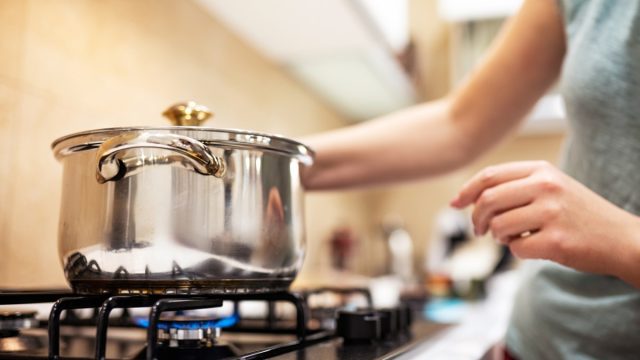
Who doesn’t love the satisfaction of flicking on a burner and having a flame leap up, heating your pan to the perfect temperature in a flash? For those of us who prefer cooking with gas, recent news about a possible ban on gas stoves is causing anxiety.
According to The New York Times, about 40 million homes in the U.S.—that’s 35 percent of households nationwide—use gas stoves. “People love their gas stoves,” Mike Sommers, president of the American Petroleum Institute, told the newspaper.
However, experts warn that gas stoves are potentially hazardous to our health, and many say we’d all be better off switching to alternative cooking methods. Best Life asked three different doctors to weigh in on the controversy. Read on to find out what they said about the health risks of having a gas stove in your home, and what you can do to mitigate them.
READ THIS NEXT: Never Prepare Chicken Like This, CDC Warns.
Gas stoves release pollutants into the air.
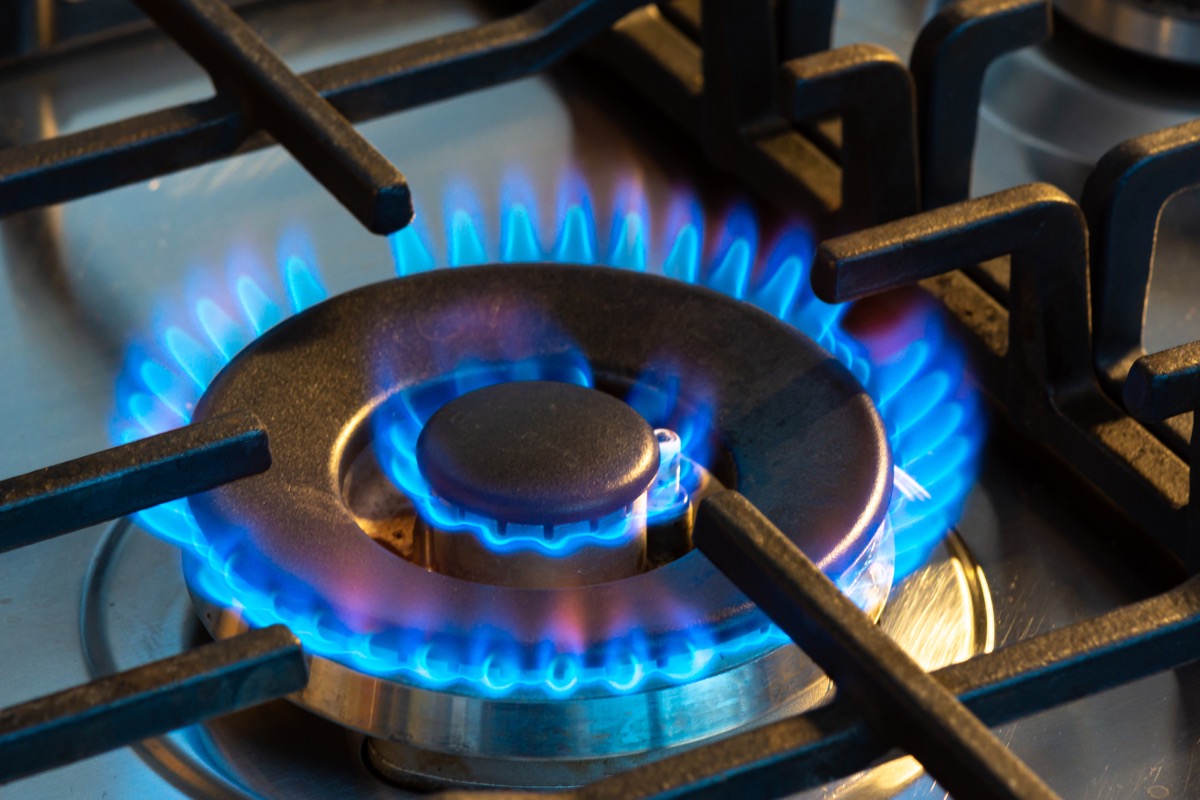
A gas stove works by burning natural gas, which can give off chemicals including nitrogen oxides (NOx), carbon monoxide (CO), and formaldehyde (CH2O), writes the California Air Resources Board.
Steve Allison, PhD, professor of ecology and evolutionary biology at the University of California, Irvine, explains: “Burning gas releases pollutants into the air, especially NOx. Unless the stove is adequately vented—and most are not—those pollutants build up in the home, sometimes reaching levels that surpass air quality standards,” he tells Best Life. “In fact, cooking on a gas stove can make indoor air quality worse than a smoggy day in Los Angeles or Beijing.”
Are you more inclined to order takeout than to put on your chef’s apron? You may think you don’t have to worry as much if you don’t use your gas stove often, but Allison says that’s not the case. “Even when turned off, stoves may leak natural gas and release pollutants into the air. The worst culprits are chemicals like benzene—a potent carcinogen—and methane, a powerful greenhouse gas.”
READ THIS NEXT: Never Wash These Vegetables Before Eating Them, Experts Warn.
Exposure to gas stoves may cause asthma, bronchitis, and cancer.
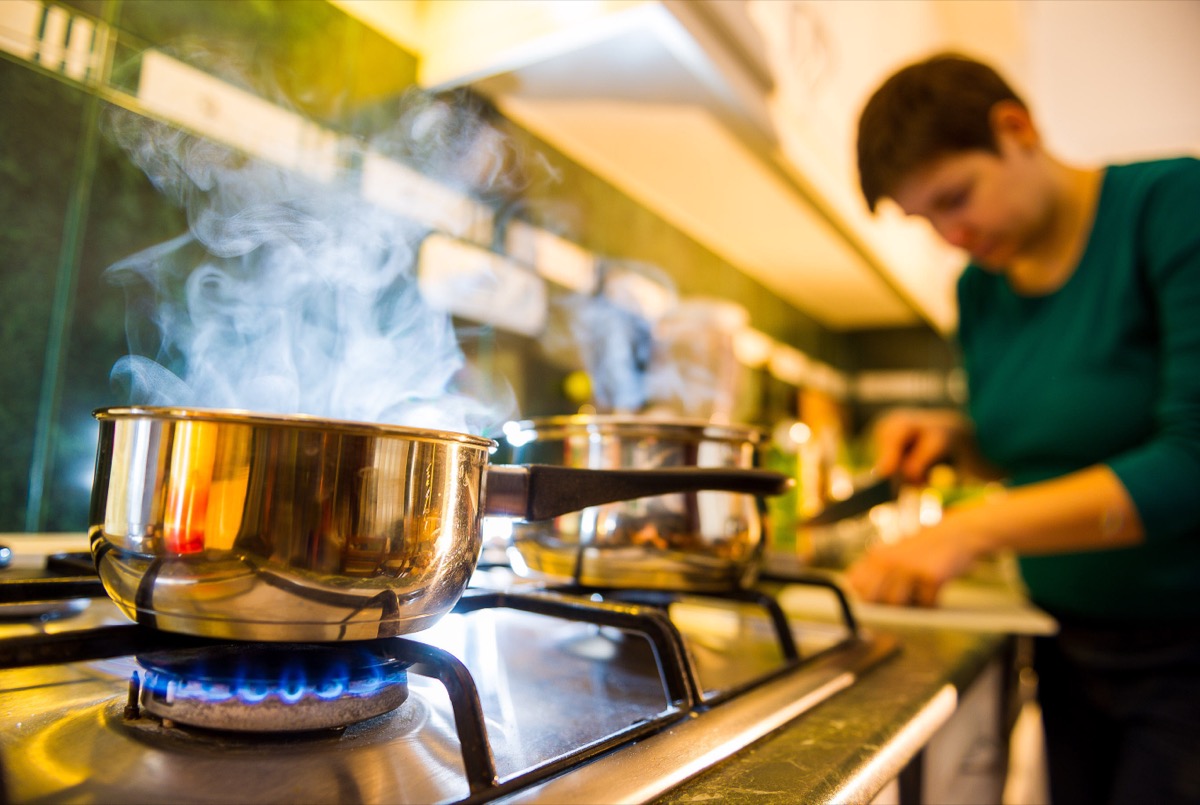
“The use of a gas stove can potentially have adverse health effects if proper safety precautions are not taken,” says Randa Jaafar, MD, a pain management doctor and anesthesiologist based in New York City. “Nitrogen dioxide (NO2) is released when gas is burned, and it can cause respiratory problems such as bronchitis, asthma, and even lung cancer,” she tells Best Life. “Long-term exposure to NO2 can also lead to decreased lung function and increased susceptibility to respiratory infections.”
“A recent scientific paper attributed 13 percent of U.S. childhood asthma cases to gas stove use in the home,” adds Allison. “The percentage was even higher—over 20 percent—in states like California, where a larger fraction of houses have gas appliances.”
Jaafar says that particulate matter (PM) is another potential problem when it comes to cooking with gas. “PM is a type of air pollution that is made up of tiny particles that are released when fuels are burned. These particles can be inhaled and can cause respiratory and cardiovascular problems,” she explains. “Long-term exposure to PM can lead to chronic bronchitis, lung cancer, and heart disease.”
Carbon monoxide poisoning is a concern with gas stoves.
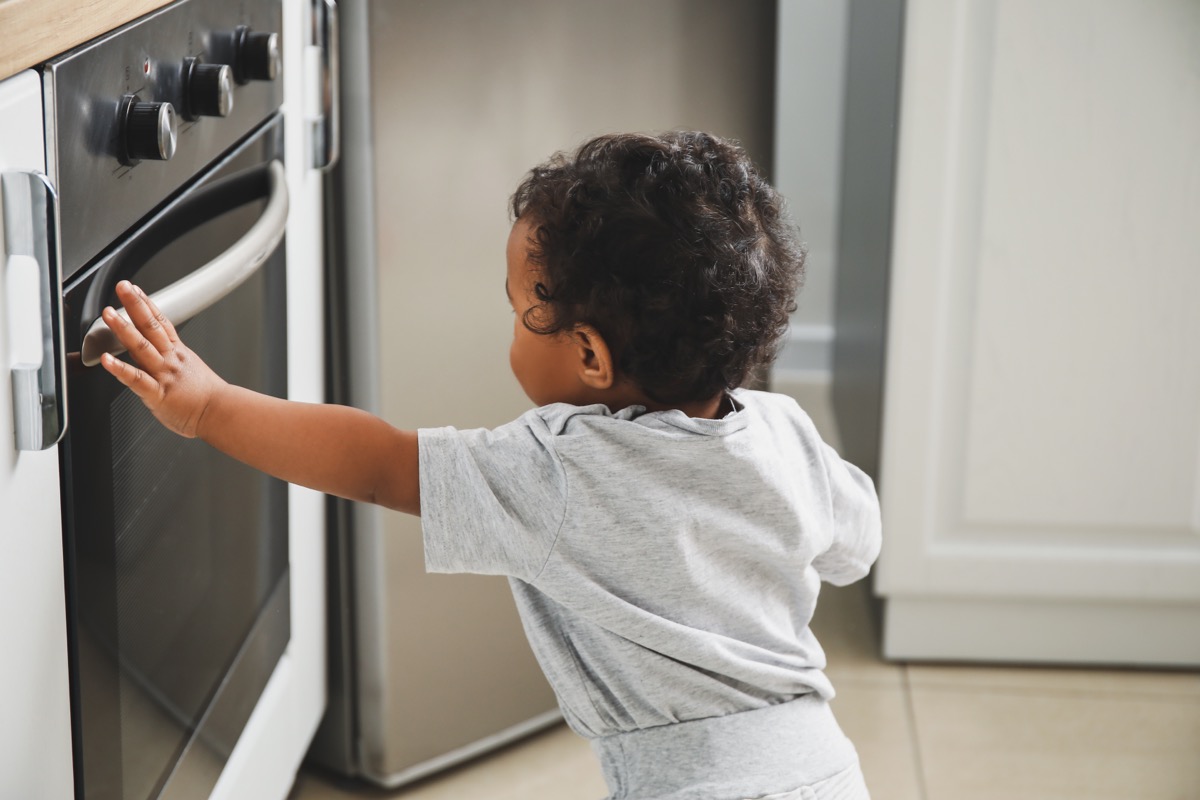
“Another potential health effect of using a gas stove is exposure to carbon monoxide (CO),” says Jaafar. “CO is a colorless, odorless gas that is produced when fuels like gas are burned. When inhaled, it can cause headaches, dizziness, weakness, nausea, and even death.”
When used properly, gas stoves should not pose a threat of CO poisoning—but if a leak or other malfunction happens, it can become a hazard.
“Gas leaks can be hard to detect, and of course they can be a fire risk,” says physician and consultant Laura Purdy, MD. “It’s very important that parents pay attention to the knobs on their gas stoves, as it can be very easy for children to turn on the knob and cause a leaking of gas without activating the pilot light,” she tells Best Life. “I have definitely had instances where I smelled gas and we had to call the gas company to come and make sure there was no leak, but what happened was one of the kids touched the stove.”
For more health news sent directly to your inbox, sign up for our daily newsletter.
Proper ventilation may lessen the health risks of gas stoves.
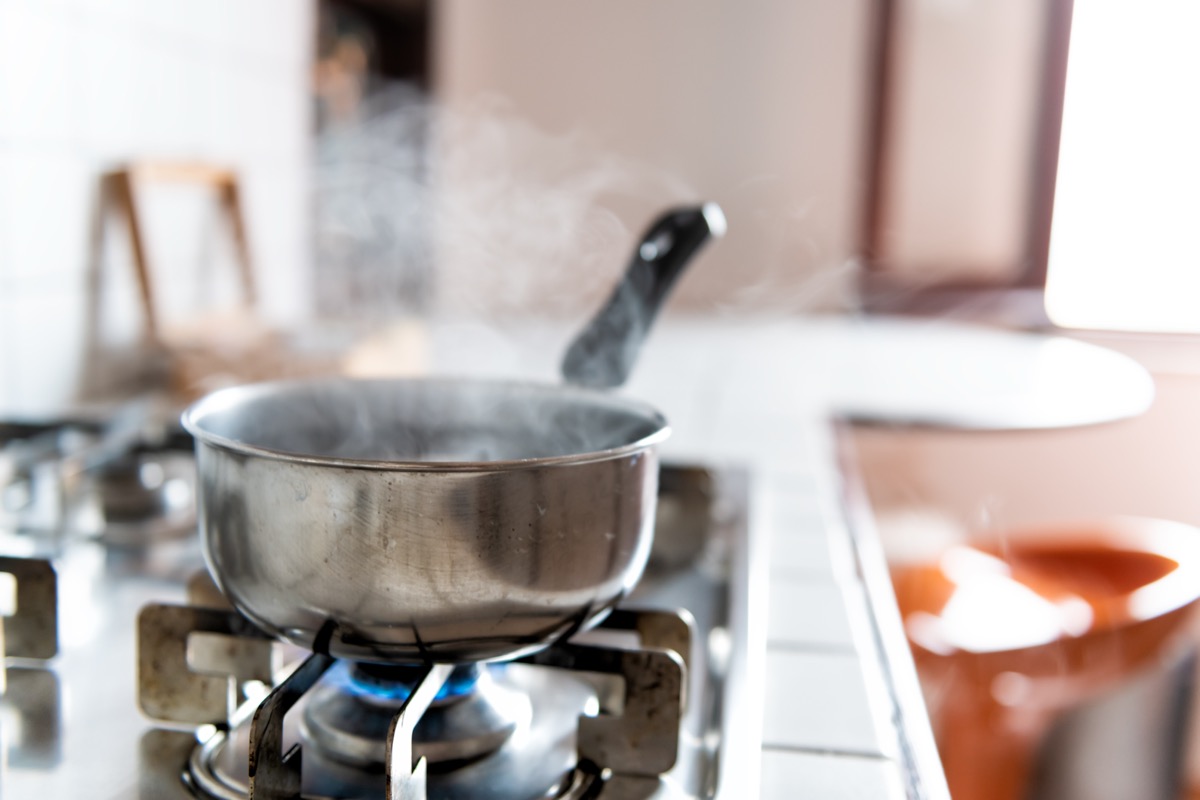
Ensuring that your kitchen has plenty of airflow is one way to help mitigate the potential risks of using a gas stove—and that can be as simple as opening a window and running a fan while you cook. However, no amount of ventilation can completely remove the risk of having a gas stove in your home, which is leading some people to replace their household appliances.
“Because of the risks to my children’s health and the climate, I switched out the gas stove in my California home for a magnetic induction model in 2021,” Allison says. “That same year, I also replaced all other remaining gas-powered appliances so my home runs only on electricity. I’m now enjoying an improved, affordable cooking experience without the risk of asthma, cancer, or fires from having natural gas in my house.”
If you do have a gas stove, Jaafar emphasizes the importance of taking proper precautions. “It is important to have a carbon monoxide detector in the home, and to ensure that the gas stove is properly ventilated to minimize the risk of CO exposure,” she says.